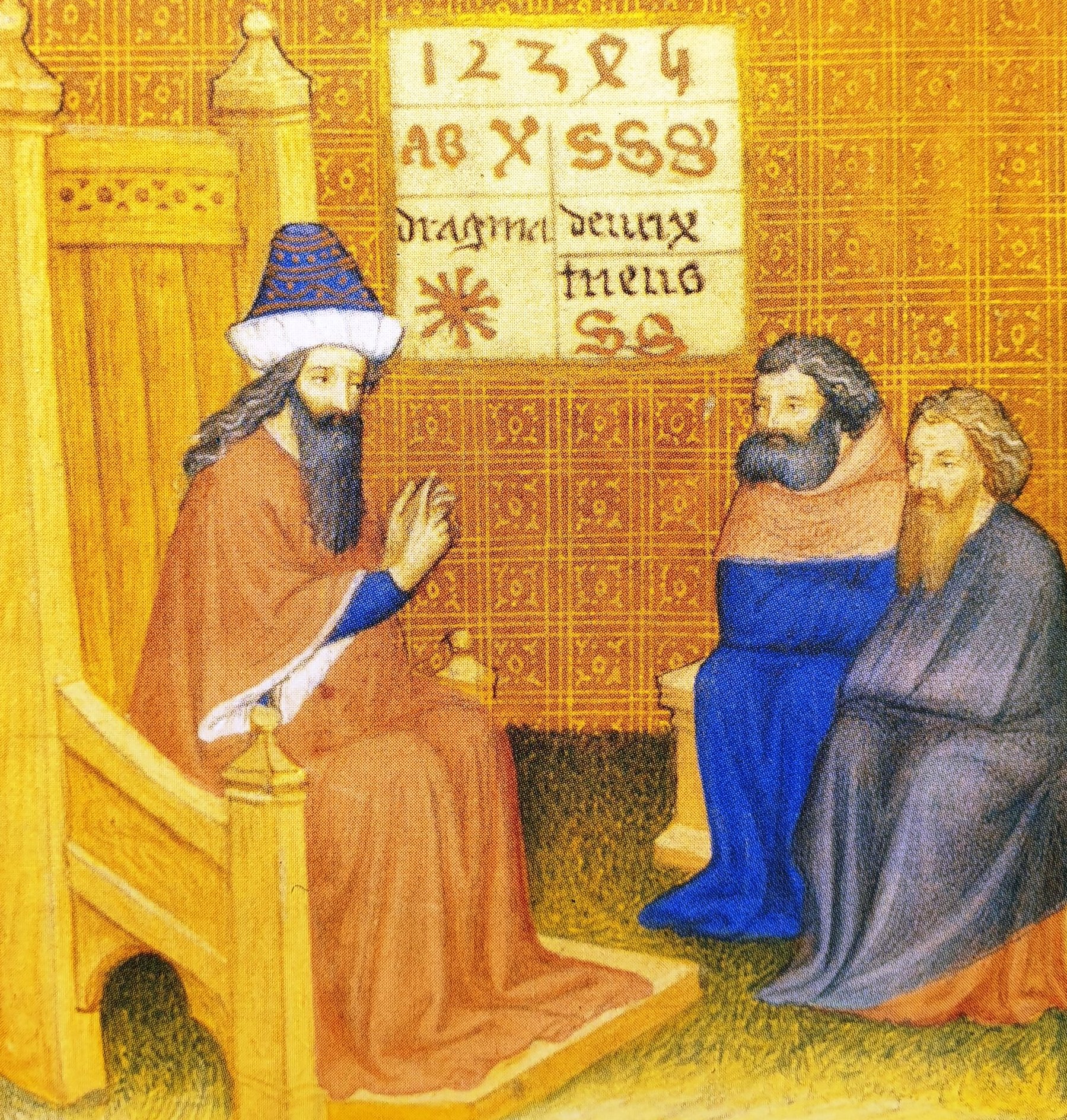Difference between revisions of "Adelard of Bath (c.1080-1152)"
Tao alexis (talk | contribs) (Created page with "'''Adelard of Bath''', also known as Aethelhard, was a 12th century English scholastic philosopher and translator from the Arabic language. One of the most prominent writers...") |
Tao alexis (talk | contribs) |
||
| Line 1: | Line 1: | ||
| + | [[File:Adelard of Bath.jpg|right|350px|thumb|]] | ||
'''Adelard of Bath''', also known as Aethelhard, was a 12th century English scholastic philosopher and translator from the Arabic language. One of the most prominent writers on scientific subjects of his time, he was especially famous for his studies in Arabic philosophy, which had an influence on contemporary thought. The plethora of translated works and ideas from Spain, following the defeat of the Moslem kingdoms there, had produced a new secular learning; there were many taken with trying to synthesise this with traditional Christian thought. Adelard held that religion and science, in their contemporary forms, were not compatible. | '''Adelard of Bath''', also known as Aethelhard, was a 12th century English scholastic philosopher and translator from the Arabic language. One of the most prominent writers on scientific subjects of his time, he was especially famous for his studies in Arabic philosophy, which had an influence on contemporary thought. The plethora of translated works and ideas from Spain, following the defeat of the Moslem kingdoms there, had produced a new secular learning; there were many taken with trying to synthesise this with traditional Christian thought. Adelard held that religion and science, in their contemporary forms, were not compatible. | ||
Revision as of 19:56, 8 May 2023
Adelard of Bath, also known as Aethelhard, was a 12th century English scholastic philosopher and translator from the Arabic language. One of the most prominent writers on scientific subjects of his time, he was especially famous for his studies in Arabic philosophy, which had an influence on contemporary thought. The plethora of translated works and ideas from Spain, following the defeat of the Moslem kingdoms there, had produced a new secular learning; there were many taken with trying to synthesise this with traditional Christian thought. Adelard held that religion and science, in their contemporary forms, were not compatible.
His Perdifficiles quaestiones naturales ("Difficult Natural Questions"), printed after 1472, contains the fruit of his Arabic learning. He also translated the Kharismian Tables (Arabic astronomical charts) and an Arabic text on astronomy, and wrote on such popular medieval subjects as the astrolabe and the abacus. His most important work from a philosophical point of view is De eodem et diverso ("About the Same and Different), an allegorical analysis of the conflicts between the nominalists and the realists. He's said to have originated the doctrine of indifference, according to which the individual, stripped of his own peculiarities, displays in himself the genus and species in their unaltered identity.
